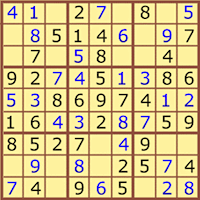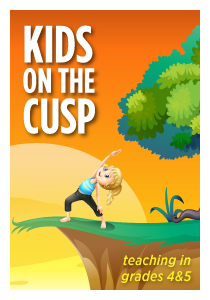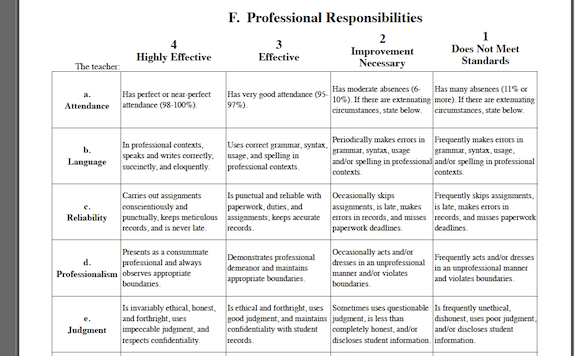Self-Assessment: My Final Rubric
A MiddleWeb Blog
By Mary Tarashuk
When I opened up the Internet the other day, I stopped on my home page, which is now Google. This home page has been a source of frustration for me recently. The frustration, albeit low-level, was that this wasn’t my old home page.
A few weeks ago, the home page I had carefully designed, complete with two inspirational quotes, links to a few newsfeeds and ESPN, and a daily Sudoku puzzle, was no longer available. I’m sure something similar is still available out there, I just haven’t sat down to figure out how to do (or even find) it…yet.
For now, an abundantly white page (even one with excellent graphics and creative ideas hidden within its logo) just stares at me in an impersonal way.
This changed the other day. What I noticed this time, after opening Google Chrome, was a small link that read, “Remember the moments of 2013.” I clicked.
My new home page now became a bit more personal. This link led me to a video that encouraged me to “Search On” for new beginnings and new frontiers.
Maybe change isn’t something I should let frustrate me. It’s inevitable. Maybe I just need to keep my eyes open for the small links in life that I can click on. They may hold valuable lessons that help me define my own, internal objectives.
The Teacher Evaluation Rubrics
When I was first told about the new changes in New Jersey’s teacher evaluation process, I wasn’t concerned about job security. I was concerned with finding the time to do all of the paperwork involved, metaphorically speaking. The time I spent evaluating myself with state-mandated rubrics was done on-line. There was very little paper involved.
I did print out a hard copy for myself. I am what some may call “old school.” I like having a hard copy to review, revise and edit. I still feel most comfortable doing my lesson plans in pencil, swiping eraser crumbs away as I plan and re-plan. I swipe my children’s Nooks to read late at night, but I prefer the feel of a book in my hands, the feel of manually turning the crisp pages. I like the smell of the paper.
The paper printouts of Marshall’s rubrics didn’t have that same comforting effect on me. They became a source of angst. At first glance, they seemed very complicated, too detailed to wrap my head around. Then I took a second look…and a third…
My perception of these rubrics has changed as each has been dissected, put under a high density microscope, and peered at closely. My attempt to label myself as a three or a four (or a two) has resolved itself into something a little less formal. These rubrics help guide me. They don’t define me.
The Final Domain
But Word Girl (that’s me) likes playing around with definitions. Playing with words makes the task of self-assessment more enjoyable. Let’s start the New Year by finishing up with a look at the numeric rubric ratings adopted in 2013 and their application in the day to day task of teaching kids.
Professional Responsibilities is the final domain in the teacher evaluation rubrics that the state is using to define my success, to evaluate and define me.
Professional implies special training or skill. According to my new home page, profess can be broken into parts. The word itself is composed of “pro” meaning “towards” and “fateor,” meaning “to confess, reveal, or make known.” So, “profess” means, essentially, “to admit openly.”
Responsible has its roots in the Latin, rēspondēre, meaning having the ability to respond. The domain that defines our professional responsibilities makes us look at our ability to respond as educators and to act accordingly, proactively, responsibly.
 For the final rubric, I found that, much like the Sudoku puzzle I so miss on my old home page, sometimes I need to take a step back. This makes it easier to see the patterns. In Marshall’s final rubric, the pattern I see is that there was only one category in which I rated myself a “4,” a highly effective teacher.
For the final rubric, I found that, much like the Sudoku puzzle I so miss on my old home page, sometimes I need to take a step back. This makes it easier to see the patterns. In Marshall’s final rubric, the pattern I see is that there was only one category in which I rated myself a “4,” a highly effective teacher.
According to the Marshallian definition of highly effective, there was no way I could score a perfect rating in the first nine sub-categories. These categories are the report card version of “works well with others” and “uses good judgment.”
I do play well with others, most of the time. It’s the word choice, Marshall’s descriptions of how to do this in a highly effective manner, that I can’t get my ownership around.
Getting really real
Let’s let Word Girl have her way for the final “formal” assessment:
In order to be Highly Effective in fulfilling my Professional Responsibilities, I must:
a) Have perfect, or near-perfect attendance… No sick kids, no life emergencies or wrenches thrown into the mix.
b) Speak and write eloquently… I try, but sometimes blunt beats out eloquence.
c) Keep meticulous records…. Meticulous? Don’t look at my desk. Stop!
d) Present as a consummate professional… Consummate is an absolute. Those are dangerous to even say out loud.
e) Be invariably ethical, honest, and forthright, and use impeccable judgment… Impeccable? That means flawless. I’ve found plenty of flaws under the microscope recently.
f) Go above and beyond by frequently volunteering for extra activities… Frequently? Often is more fitting.
g) Contribute valuable ideas and instill them in others… I find value in my ideas. I don’t always know whether others consider them valuable.
h) Actively and openly seek out feedback from students, parents, and colleagues… Sometimes I don’t want to know what others think (see contributing valuable ideas above). Sometimes the truth hurts.
i) Meet weekly with colleagues to analyze performance and share ideas… Formally or informally? Do faculty meetings count? If we are not given the time to do this, should we be accountable for finding it?
Words like perfect, consummate, invariably, and impeccable all define a state of flawlessness. That’s not me. Words like ethical, contribute, and share (or phrases like above-and-beyond or openly seek), are more descriptive of my style.
I did award myself a “4” in the very last category of this very last rubric. This category is entitled Growth. To be considered highly efficient in this area, I need to “actively reach out for new ideas and engage in action research with colleagues to figure out what works best.” I do.
I will change, pencil in hand
I read somewhere nearby that, in this current age of technological advancement, we are preparing our students for careers that don’t yet exist. They will have jobs and responsibilities that haven’t even been thought up as of January 2014.
 Our ability to respond to this fact, to be responsible and to adapt accordingly, may offer a different path with regard to the swinging pendulum of education. Maybe technology and new discoveries will knock it off its foundation, changing the continuous back-and-forth motion of learning strategies and teaching approaches.
Our ability to respond to this fact, to be responsible and to adapt accordingly, may offer a different path with regard to the swinging pendulum of education. Maybe technology and new discoveries will knock it off its foundation, changing the continuous back-and-forth motion of learning strategies and teaching approaches.
I still plan on doing my lesson plans in pencil, but the new beginnings and new frontiers that Google’s video reminded me to search for, require me to change.



































